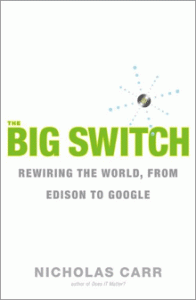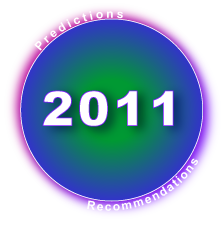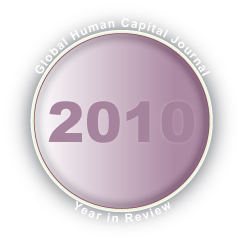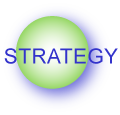 Giving as Smart Business: Blake Mycoskie, Founder TOMS Shoes is a fantastic story and a smart business idea. Blake Mycoskie is a gifted storyteller in his own right, and, in this South by Southwest 2011 keynote, he entertained the audience with the story of TOMS Shoes while imparting a simple but profound principle of 21st century business: discovering the meaning and potential of giving. Here are the highlights of TOMS story, which will help you appreciate the context of the blockbuster business idea. Giving as Smart Business: Blake Mycoskie, Founder TOMS Shoes is a fantastic story and a smart business idea. Blake Mycoskie is a gifted storyteller in his own right, and, in this South by Southwest 2011 keynote, he entertained the audience with the story of TOMS Shoes while imparting a simple but profound principle of 21st century business: discovering the meaning and potential of giving. Here are the highlights of TOMS story, which will help you appreciate the context of the blockbuster business idea.
[…]
Review: South by Southwest Interactive 2011 takes you behind the curtain of the famous confab and suggests why you might want to attend
 I had never attended SXSW before because I always had other things happening, and the value proposition was never obvious to me. In general, I attend very few “social media” conferences as the hype usually exceeds the delivery in an “industry” that’s particularly prone to self-congratulation. This year, a client launched a new venture at SXSW, so I decided to stay a couple of days afterward to see what the noise was about. Here are my informal impressions that I hope will be useful to you in deciding whether it might be worthwhile for you to attend. I invite your comments and impressions, too. I had never attended SXSW before because I always had other things happening, and the value proposition was never obvious to me. In general, I attend very few “social media” conferences as the hype usually exceeds the delivery in an “industry” that’s particularly prone to self-congratulation. This year, a client launched a new venture at SXSW, so I decided to stay a couple of days afterward to see what the noise was about. Here are my informal impressions that I hope will be useful to you in deciding whether it might be worthwhile for you to attend. I invite your comments and impressions, too.
[Update: links to additional coverage below: Gowalla, TOMS, LinkedIn execs]
[…]
Curmudgeonly Looking into the Past to Divine the Future—That Nagging Privacy Issue—Debunking the Elephant
 The Big Switch is a valuable book that reflects what has become Nick Carr’s trademark role, heckling IT and Web enthusiasts, albeit from good seats. Carr seems to relish his role as “the fly in the ointment” of the idealistic IT-enabled world that Web missionaries espouse. Although this book has shortcomings, I recommend it for two reasons. First, Carr makes a convincing and useful argument that the “electrification” of business and society (the Edison part) has valuable lessons for the “computerization” transformation of business and society (the Google part) that is currently unfolding. This parallel provides context to think about some of the disruptions around your business, society and career. Second, Carr raises serious questions about possible privacy implications of computerization. He palpably weighs in on the dark side and seems to want the world to change course from the “googlization of life.” If you haven’t read The Long Tail, I would read these books in proximity because they are very complementary and both quick, important reads. The Big Switch is a valuable book that reflects what has become Nick Carr’s trademark role, heckling IT and Web enthusiasts, albeit from good seats. Carr seems to relish his role as “the fly in the ointment” of the idealistic IT-enabled world that Web missionaries espouse. Although this book has shortcomings, I recommend it for two reasons. First, Carr makes a convincing and useful argument that the “electrification” of business and society (the Edison part) has valuable lessons for the “computerization” transformation of business and society (the Google part) that is currently unfolding. This parallel provides context to think about some of the disruptions around your business, society and career. Second, Carr raises serious questions about possible privacy implications of computerization. He palpably weighs in on the dark side and seems to want the world to change course from the “googlization of life.” If you haven’t read The Long Tail, I would read these books in proximity because they are very complementary and both quick, important reads.
As […]
 The Maple Leaf Digital Lounge has selected the Social Network Roadmap(SM) to build the social presence behind its launch, and CSRA has been working with their team for a few weeks. The Maple Leaf Digital Lounge (“MLDLCA”) is a virtual ecosystem that promotes discovery and collaboration among Canadian digital startups, foreign and Canadian investors and other enablers. Their mission is to facilitate cross-border high tech deals. “The Lounge” has two incarnations: several online venues combined with periodic physical events. Their launch event will happen on March 12 at the South by Southwest Interactive (“SxSW”) conference. Read on for my insights from working with them so far. The Maple Leaf Digital Lounge has selected the Social Network Roadmap(SM) to build the social presence behind its launch, and CSRA has been working with their team for a few weeks. The Maple Leaf Digital Lounge (“MLDLCA”) is a virtual ecosystem that promotes discovery and collaboration among Canadian digital startups, foreign and Canadian investors and other enablers. Their mission is to facilitate cross-border high tech deals. “The Lounge” has two incarnations: several online venues combined with periodic physical events. Their launch event will happen on March 12 at the South by Southwest Interactive (“SxSW”) conference. Read on for my insights from working with them so far.
Also see the case study in video and presentation formats, which illustrates the social business model, Digivents. Note, the case study uses the MLDLCA’s new name, North of 41.
[…]
 2011 Social Business Predictions and Recommendations describes current social business adoption and advices firms and people how to get ahead. 2011 Social Business Predictions and Recommendations describes current social business adoption and advices firms and people how to get ahead.
2011 will be remembered as the year “social media” fell by the wayside, strategy became a recognized prerequisite for serious efforts, and “social business” began displacing it in boardrooms’ mindshare. “Social media,” which usually tries to use social technologies to talk at people, has been the predominant “first use” of socialtech because marketing drives most social initiatives, and marketers “communicate,” i.e. push content, to their targets. When they “listen,” they use limited legacy processes such as focus groups, email marketing, data mining and online surveys. However, none of these scratch the real itch because they emphasize the company asking individuals structured questions; they don’t allow customer to customer interaction, which is ten times more illuminating because it is spontaneous and customer-centric.
Socialtech gets there, but marketers are ambivalent about it because it means a loss of control. And more profits and career growth for marketers, but they have to let go first. It’s a leap of faith, but […]
Web 3.0 and Social Business—2011 Predictions and Recommendations describes a turning point, away from social media to social business. SocialTech Grows Up—Relationship the Foundation of Business Success—Digital Clodhoppers Become Sore Thumbs.
 2011 will mark a turning point in the adoption of digital social technologies because the experimentation phase is drawing to a close, and stakeholder expectations are increasing. Organizations and people will no longer gain attention by executing badly. At the enterprise level, participation will wane in venues and initiatives that have no business strategy, focus, content strategy and commitment. Paying inexperienced people or agencies to “share” snappy content will expose brands as digital clodhoppers and push customers away. Individuals will also have to improve their game and focus on the most relevant people in their networks. Stop sending default invitations on LinkedIn. Proactively support people whom you respect and trust the most. The theme is determining and executing on strategy, focus and commitment. 2011 will mark a turning point in the adoption of digital social technologies because the experimentation phase is drawing to a close, and stakeholder expectations are increasing. Organizations and people will no longer gain attention by executing badly. At the enterprise level, participation will wane in venues and initiatives that have no business strategy, focus, content strategy and commitment. Paying inexperienced people or agencies to “share” snappy content will expose brands as digital clodhoppers and push customers away. Individuals will also have to improve their game and focus on the most relevant people in their networks. Stop sending default invitations on LinkedIn. Proactively support people whom you respect and trust the most. The theme is determining and executing on strategy, focus and commitment.
In 2011, the bar to attract and hold attention will be higher, which will present organizations with a new threat: when participation falls, some executives will conclude that […]
2010 Year In Review Initial Glimmers of Social Business is the Editor’s Choice of the Global Human Capital Journal—The Best Strategy, Tactics, Case Studies and Insights of 2010
 Compared to its progenitors 2009 and 2008, 2010 was a relatively calm year because the amplitude of market gyrations was clearly less, and businesses began to find a new floor on which to build stakeholder expectations. Although I watched with high interest the unfolding drama in Europe, I didn’t have the time to conduct the research necessary to do a rigorous interpretation. I did publish a reflection in January, which is not included in this year in review. However, 2010 marked a major turning point in the adoption of social technologies: the recognition that analysis and strategy were necessary to achieve consistent results with social initiatives. Compared to its progenitors 2009 and 2008, 2010 was a relatively calm year because the amplitude of market gyrations was clearly less, and businesses began to find a new floor on which to build stakeholder expectations. Although I watched with high interest the unfolding drama in Europe, I didn’t have the time to conduct the research necessary to do a rigorous interpretation. I did publish a reflection in January, which is not included in this year in review. However, 2010 marked a major turning point in the adoption of social technologies: the recognition that analysis and strategy were necessary to achieve consistent results with social initiatives.
2010 Macro trends
Social has been in adolescence up through 2009-2010 in which “being on Facebook” was an end in itself, agencies produced vapid content and little interaction happened because people won’t interact when brands are talking at them and not listening. People feel it when a […]
At first, it seemed that the machine had tilted, its levers, bells and flippers having hit some kind of glitch, causing us to lose the ball and the bonus points.
 As the curtain rises on the second decade of the twenty-first century, we will see that the machine is actually fine, but it’s become a different game. Quite entirely. To put it mildly, “the economy” is proving to be quite a drama, its pungence largely dependent on where your company or career is wired into it. Although it is quite frowned upon in the U.S. to admit despair, some pundits have even flirted with the moniker, “The Great Recession” to describe the crisis, a faint nod to the Great Depression of the 1930s, but this comparison is off-base. As I have argued for some time, the 2007-2010 “financial crisis” has played a mere overture to the real story, a transformation of the global “economic architecture.” I first heard this deft phrase from His Excellency Shri Kamal Nath, India’s very diplomatic Minister of Commerce in 2008 (coverage here). As the curtain rises on the second decade of the twenty-first century, we will see that the machine is actually fine, but it’s become a different game. Quite entirely. To put it mildly, “the economy” is proving to be quite a drama, its pungence largely dependent on where your company or career is wired into it. Although it is quite frowned upon in the U.S. to admit despair, some pundits have even flirted with the moniker, “The Great Recession” to describe the crisis, a faint nod to the Great Depression of the 1930s, but this comparison is off-base. As I have argued for some time, the 2007-2010 “financial crisis” has played a mere overture to the real story, a transformation of the global “economic architecture.” I first heard this deft phrase from His Excellency Shri Kamal Nath, India’s very diplomatic Minister of Commerce in 2008 (coverage here).
[…]
 In Allfacebook, Nick O’Neill presents a chart that compares the first six years’ revenue for Yahoo!, Google and Facebook. Even though some of these exercises are coffee-cooler talk without much substance, this one afforded the opportunity to think about how Facebook and Google add value. In Allfacebook, Nick O’Neill presents a chart that compares the first six years’ revenue for Yahoo!, Google and Facebook. Even though some of these exercises are coffee-cooler talk without much substance, this one afforded the opportunity to think about how Facebook and Google add value.
According to BusinessInsider’s interpretation, neither Google nor Facebook emphasized revenue in the early years and hockey-sticked later. Here’s the article, and here are my thoughts on all three players:
[…]
 Facebook Pages and Groups are rapidly becoming like websites or phone numbers—overwhelmingly banal. Last year, it was still novel for many companies and governments to launch Pages or Groups, but 2010-2011 is proving to be the inflection point: people merely expect Facebook presence because every organization has one. In step with this, the competition for Fans’ (now “Likes”) attention on Facebook is high and will continue to get higher. That said, as difficult as it is, launching and growing a powerful Facebook presence is eminently doable with the right strategy and execution. Here I will share some of my notes with a current engagement for how to grow a quality Fan base by building and leveraging a network around your presence. By the Way, Pages and Groups share similarities but they are distinct in their functionality. This post will focus mostly on Pages, but many of its techniques will work with Groups as well. Facebook Pages and Groups are rapidly becoming like websites or phone numbers—overwhelmingly banal. Last year, it was still novel for many companies and governments to launch Pages or Groups, but 2010-2011 is proving to be the inflection point: people merely expect Facebook presence because every organization has one. In step with this, the competition for Fans’ (now “Likes”) attention on Facebook is high and will continue to get higher. That said, as difficult as it is, launching and growing a powerful Facebook presence is eminently doable with the right strategy and execution. Here I will share some of my notes with a current engagement for how to grow a quality Fan base by building and leveraging a network around your presence. By the Way, Pages and Groups share similarities but they are distinct in their functionality. This post will focus mostly on Pages, but many of its techniques will work with Groups as well.
[…]
|
|
 Giving as Smart Business: Blake Mycoskie, Founder TOMS Shoes is a fantastic story and a smart business idea. Blake Mycoskie is a gifted storyteller in his own right, and, in this South by Southwest 2011 keynote, he entertained the audience with the story of TOMS Shoes while imparting a simple but profound principle of 21st century business: discovering the meaning and potential of giving. Here are the highlights of TOMS story, which will help you appreciate the context of the blockbuster business idea.
Giving as Smart Business: Blake Mycoskie, Founder TOMS Shoes is a fantastic story and a smart business idea. Blake Mycoskie is a gifted storyteller in his own right, and, in this South by Southwest 2011 keynote, he entertained the audience with the story of TOMS Shoes while imparting a simple but profound principle of 21st century business: discovering the meaning and potential of giving. Here are the highlights of TOMS story, which will help you appreciate the context of the blockbuster business idea.
 I had never attended SXSW before because I always had other things happening, and the value proposition was never obvious to me. In general, I attend very few “social media” conferences as the hype usually exceeds the delivery in an “industry” that’s particularly prone to self-congratulation. This year, a client launched a new venture at SXSW, so I decided to stay a couple of days afterward to see what the noise was about. Here are my informal impressions that I hope will be useful to you in deciding whether it might be worthwhile for you to attend. I invite your comments and impressions, too.
I had never attended SXSW before because I always had other things happening, and the value proposition was never obvious to me. In general, I attend very few “social media” conferences as the hype usually exceeds the delivery in an “industry” that’s particularly prone to self-congratulation. This year, a client launched a new venture at SXSW, so I decided to stay a couple of days afterward to see what the noise was about. Here are my informal impressions that I hope will be useful to you in deciding whether it might be worthwhile for you to attend. I invite your comments and impressions, too. The Big Switch is a valuable book that reflects what has become Nick Carr’s trademark role, heckling IT and Web enthusiasts, albeit from good seats. Carr seems to relish his role as “the fly in the ointment” of the idealistic IT-enabled world that Web missionaries espouse. Although this book has shortcomings, I recommend it for two reasons. First, Carr makes a convincing and useful argument that the “electrification” of business and society (the Edison part) has valuable lessons for the “computerization” transformation of business and society (the Google part) that is currently unfolding. This parallel provides context to think about some of the disruptions around your business, society and career. Second, Carr raises serious questions about possible privacy implications of computerization. He palpably weighs in on the dark side and seems to want the world to change course from the “googlization of life.” If you haven’t read The Long Tail, I would read these books in proximity because they are very complementary and both quick, important reads.
The Big Switch is a valuable book that reflects what has become Nick Carr’s trademark role, heckling IT and Web enthusiasts, albeit from good seats. Carr seems to relish his role as “the fly in the ointment” of the idealistic IT-enabled world that Web missionaries espouse. Although this book has shortcomings, I recommend it for two reasons. First, Carr makes a convincing and useful argument that the “electrification” of business and society (the Edison part) has valuable lessons for the “computerization” transformation of business and society (the Google part) that is currently unfolding. This parallel provides context to think about some of the disruptions around your business, society and career. Second, Carr raises serious questions about possible privacy implications of computerization. He palpably weighs in on the dark side and seems to want the world to change course from the “googlization of life.” If you haven’t read The Long Tail, I would read these books in proximity because they are very complementary and both quick, important reads. The Maple Leaf Digital Lounge has selected the Social Network Roadmap(SM) to build the social presence behind its launch, and CSRA has been working with their team for a few weeks. The Maple Leaf Digital Lounge (“MLDLCA”) is a virtual ecosystem that promotes discovery and collaboration among Canadian digital startups, foreign and Canadian investors and other enablers. Their mission is to facilitate cross-border high tech deals. “The Lounge” has two incarnations: several online venues combined with periodic physical events. Their launch event will happen on March 12 at the South by Southwest Interactive (“SxSW”) conference. Read on for my insights from working with them so far.
The Maple Leaf Digital Lounge has selected the Social Network Roadmap(SM) to build the social presence behind its launch, and CSRA has been working with their team for a few weeks. The Maple Leaf Digital Lounge (“MLDLCA”) is a virtual ecosystem that promotes discovery and collaboration among Canadian digital startups, foreign and Canadian investors and other enablers. Their mission is to facilitate cross-border high tech deals. “The Lounge” has two incarnations: several online venues combined with periodic physical events. Their launch event will happen on March 12 at the South by Southwest Interactive (“SxSW”) conference. Read on for my insights from working with them so far. 2011 Social Business Predictions and Recommendations describes current social business adoption and advices firms and people how to get ahead.
2011 Social Business Predictions and Recommendations describes current social business adoption and advices firms and people how to get ahead. Compared to its progenitors 2009 and 2008, 2010 was a relatively calm year because the amplitude of market gyrations was clearly less, and businesses began to find a new floor on which to build stakeholder expectations. Although I watched with high interest the unfolding drama in Europe, I didn’t have the time to conduct the research necessary to do a rigorous interpretation. I did publish a reflection in January, which is not included in this year in review. However, 2010 marked a major turning point in the adoption of social technologies: the recognition that analysis and strategy were necessary to achieve consistent results with social initiatives.
Compared to its progenitors 2009 and 2008, 2010 was a relatively calm year because the amplitude of market gyrations was clearly less, and businesses began to find a new floor on which to build stakeholder expectations. Although I watched with high interest the unfolding drama in Europe, I didn’t have the time to conduct the research necessary to do a rigorous interpretation. I did publish a reflection in January, which is not included in this year in review. However, 2010 marked a major turning point in the adoption of social technologies: the recognition that analysis and strategy were necessary to achieve consistent results with social initiatives. As the curtain rises on the second decade of the twenty-first century, we will see that the machine is actually fine, but it’s become a different game. Quite entirely. To put it mildly, “the economy” is proving to be quite a drama, its pungence largely dependent on where your company or career is wired into it. Although it is quite frowned upon in the U.S. to admit despair, some pundits have even flirted with the moniker, “The Great Recession” to describe the crisis, a faint nod to the Great Depression of the 1930s, but this comparison is off-base. As I have argued for some time, the 2007-2010 “financial crisis” has played a mere overture to the real story, a transformation of the global “economic architecture.” I first heard this deft phrase from His Excellency Shri Kamal Nath, India’s very diplomatic Minister of Commerce in 2008 (coverage here).
As the curtain rises on the second decade of the twenty-first century, we will see that the machine is actually fine, but it’s become a different game. Quite entirely. To put it mildly, “the economy” is proving to be quite a drama, its pungence largely dependent on where your company or career is wired into it. Although it is quite frowned upon in the U.S. to admit despair, some pundits have even flirted with the moniker, “The Great Recession” to describe the crisis, a faint nod to the Great Depression of the 1930s, but this comparison is off-base. As I have argued for some time, the 2007-2010 “financial crisis” has played a mere overture to the real story, a transformation of the global “economic architecture.” I first heard this deft phrase from His Excellency Shri Kamal Nath, India’s very diplomatic Minister of Commerce in 2008 (coverage here). In Allfacebook, Nick O’Neill presents a chart that compares the first six years’ revenue for Yahoo!, Google and Facebook. Even though some of these exercises are coffee-cooler talk without much substance, this one afforded the opportunity to think about how Facebook and Google add value.
In Allfacebook, Nick O’Neill presents a chart that compares the first six years’ revenue for Yahoo!, Google and Facebook. Even though some of these exercises are coffee-cooler talk without much substance, this one afforded the opportunity to think about how Facebook and Google add value. Facebook Pages and Groups are rapidly becoming like websites or phone numbers—overwhelmingly banal. Last year, it was still novel for many companies and governments to launch Pages or Groups, but 2010-2011 is proving to be the inflection point: people merely expect Facebook presence because every organization has one. In step with this, the competition for Fans’ (now “Likes”) attention on Facebook is high and will continue to get higher. That said, as difficult as it is, launching and growing a powerful Facebook presence is eminently doable with the right strategy and execution. Here I will share some of my notes with a current engagement for how to grow a quality Fan base by building and leveraging a network around your presence. By the Way, Pages and Groups share similarities but they are distinct in their functionality. This post will focus mostly on Pages, but many of its techniques will work with Groups as well.
Facebook Pages and Groups are rapidly becoming like websites or phone numbers—overwhelmingly banal. Last year, it was still novel for many companies and governments to launch Pages or Groups, but 2010-2011 is proving to be the inflection point: people merely expect Facebook presence because every organization has one. In step with this, the competition for Fans’ (now “Likes”) attention on Facebook is high and will continue to get higher. That said, as difficult as it is, launching and growing a powerful Facebook presence is eminently doable with the right strategy and execution. Here I will share some of my notes with a current engagement for how to grow a quality Fan base by building and leveraging a network around your presence. By the Way, Pages and Groups share similarities but they are distinct in their functionality. This post will focus mostly on Pages, but many of its techniques will work with Groups as well.